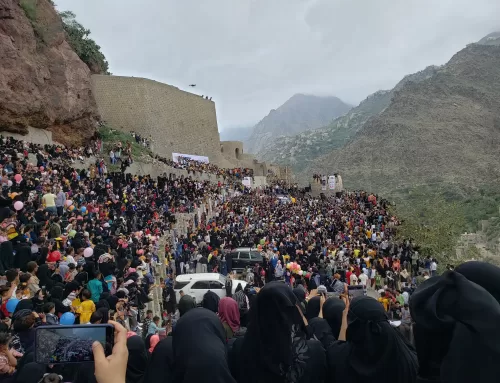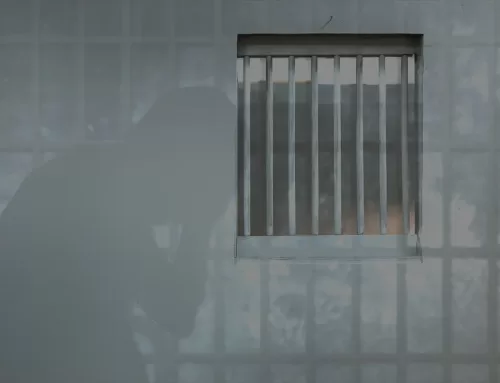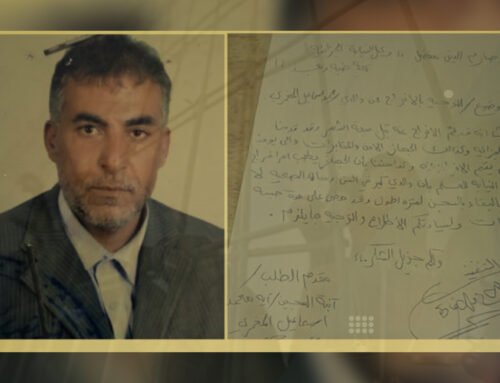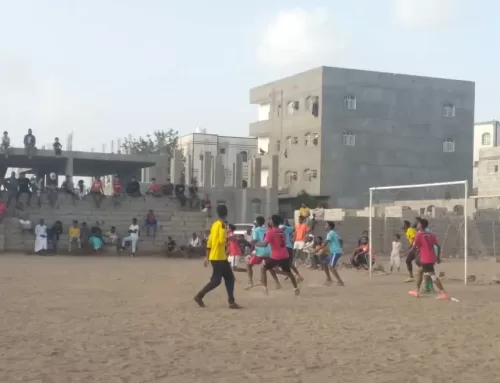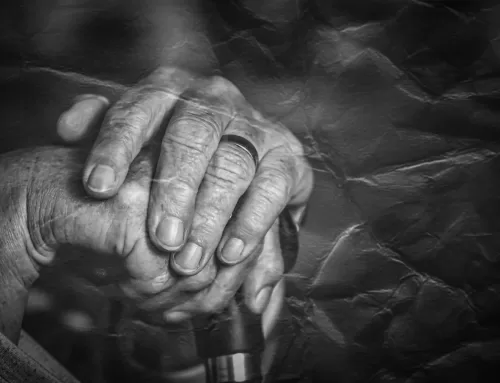Now Here we are; My Family and I are all Displaced
12 December 2021
It wasn’t long since I set foot in Marib for the first time. I got there at noon and didn’t wait for the sand of the desert to pile up on me. I wandered the streets at a brisk pace of a stranger, hastily glancing, on roadsides, at pale faces of people who have for years lost any sense of satisfaction.
The city of Marib was overwhelmed with displaced residents fleeing from a death, whose voracity for more victims was open in the south, constantly fed indiscriminately by parties to the conflict with everything that fell on their way. Following the deluge of fugitives flooding the city- with each stream of there was a tragedy- the question that escorted them throughout their displacement was whether they would return before death or would death strike first in the marathon of a devastating war that leaves nothing behind.. intact.
Marib governorate hosted many displaced people from various provinces of the country since the start of the armed conflict in Yemen in September 2014, as well as after the recent escalation of military operations in the province, in mid-January 2020. The southern districts of Marib witnessed enormous waves of displaced people, many of whom have been displaced previously to Marib from other provinces, and now they are moving from one area to another within Marib itself.
On a morning visit to Jaw al-Ubar area, I met Somaya Ali (43 years), a mother of four (a daughter and three sons), on November 1, 2021. Jaw al-Ubar, in Marib, has become a camp hosting many of the displaced people.
“We came here a month ago to my family’s house in Al-Jersha village of Al- Juba district.” Somaya said. “We were displaced from Al-Jadida, the center of Al-Juba district, on the day a missile hit the supply line (a vehicle carrying food to frontline fighters affiliated to government forces), so we left at noon. The missiles continued to target the area for another two months. Meanwhile, school study stopped at the beginning of October. The students only studied in September.”
“In less than a month, I moved from Al Jadida to Jarash, and then to the Jaw al-Ubar ”, she added, “My children’s studies had stopped, and my son Ahmed, 22, (a pseudonym) is studying petroleum engineering at Shabwa University. He was on a visit to stay next to me. Here, he doesn’t want to leave me, and I do not know how to convince him to return to Shabwa to complete his studies.” She added.
“After a month of displacement in my family’s house in Al-Jarsha village, a shell fell next to the house on Tuesday, October 28, 2021, so we left with what we had on, not knowing where to go. We left in the morning, between nine and ten, very terrified. We saw some people fleeing, leaving their sheep in farmlands and pastures. After I was displaced in my family’s house, we all became displaced here in the house of one of my mother’s relatives.” Somya hushed up in pain and defeat.
“All of my dreams were focused on returning back to the house that I built 11 years ago, but even that goal was clouded by fears. I may return and the area would be caught in the line of fire again, or perhaps the Houthis would drag my children to the war fronts. I have no reassurance left except that my children are near me..,” she concluded with an open mouth, as if she wanted to say something else, but kept silent. I felt her ruminating the agony of her pain and then retreating to swallow it. Perhaps despair or anguish manifested itself in the shape of an evasive silence.
Al-Jarsha is a small village located between two mountains. Ansar Allah armed group (Houthis)were stationed on one of them, while the government forces were on the other until the Houthis took control of it.
“Oh, my longing!” She answered my first question about her husband with a deep sigh, “the Houthis became a barrier between me and him.”
In the same area, I met Faiza Ahmed (45 years). “Oh, my longing!” She answered my first question about her husband with a deep sigh, “the Houthis became a barrier between me and him.” She’s a mother of seven children (two daughters and five sons).
“I am here in Jaw al-Ubar with six of my children at my cousins’ house,” She added, “while my husband and my son are there in Jabal al-Sahl, where we have a farm and some cattle.”
“On Tuesday, October 28, 2021, we loaded the car with supplies and went up to the mountain after we heard the news of displacement from neighboring villages, planning, on the second trip the car would take us with the rest of the supplies to Jabal al-Sahl so that my children, my husband and I, we would all be together on the mountain despite its ruggedness, for the sake of safety; for the mountain is safer than the village, after the shelling started and everyone has left the village” she continued.
“But then the road was cut off and we could not go to the mountain, so we changed our direction along with other people heading to Jaw al-Ubar, and here I kept my belongings in this yard, while my son and my husband are alone on Jabal al-Sahl, and I do not know their news.” She said before lamenting, “Our life is in the land, in farming and in pastures, and how much I would have liked to be assured that my son and my companion are safe.” She concluded.
Then there was Najwa Muhammad (35 years), a health worker in the 22 May Hospital, El Jadida, where her husband also works. She is a mother of four.
“We left on Monday, October 27,” Najwa said, “We rented a car for 30,000 riyals. We said we are going to our relatives in Jaw al-Ubar until the fighting subsides after we saw what happened in El Jadida.”
“We came with the least of personal belongings to the house of my sister-in-law, and on the second day the entire village was leaving and news came that a shell had hit our house and most of it was damaged,” she continued crying. “Thank God for the safety of our souls. I used to say, ‘Lord, give us our country back, but today I wonder where we are going after we have become homeless. My sister-in-law, I, and our children are all in this room. God bless those who accepted us,” she concluded.
On another visit to Al-Manin (Al-Jufaina) on Monday, November 8, 2021, I met Faiza Al-Aji (55 years old), from Jabal Murad.
“I was displaced on Sunday, October 10, 2021,” Faiza said. “I went out at ten at night, with my family and my livestock. We got separated; my family is in the compound and I am here in Al-Manin (Al-Jufaina) taking care of the cattle. We left at night because of fear and shelling. It was the first time I leave my house. We went out after hearing the sound of gunfire and shelling. But we were afraid that they (Houthis) would surround us like they did at Al-Abdiah.” She too limited her wishes to return to her home.
On the other hand, Khadra Ali Muftah (23 years) said on her part, “my mother and my brothers came to the complex on Saturday 16 October 2021 just to treat my mother, and when they went back the road was blocked for them. There is no way today to our village on Jabal Murad. Now they are in the complex, and my father is in the village, alone.”
“We got separated; my family is in the compound and I am here in Al-Manin (Al-Jufaina) taking care of the cattle. We left at night because of fear and shelling. It was the first time I leave my house. We went out after hearing the sound of gunfire and shelling.”
I left them and in my head feelings and questions were crisscrossing. How long will the misery of these and thousands like them last on the sidewalks before returning to the warmth of their homes and roofs? How long will they continue to revolve in the grinding mill of the bitterness of destitution since the first moments of displacement? How many tears will they shed as they drift towards the unknown, that is enlarging every day?
I went back to my room and was overwhelmed by conflicting feelings from every direction. Is this Marib, where the temple of Awam and its Great Dam were built? Didn’t I dream when I was ten years old that one day I’d come here to feel the structures, the architecture, the uniqueness, and dream?
Here I am today, close to its great civilization, surrounded by all these faces tired of the barren years of war; their afflictions and burdens. I hurriedly browsed through the Facebook pages, and what anguish they throw at my face when I saw a statement issued by Mwatana about Ma’rib.
Mwatana said in a recent statement that it had documented ground and air attacks and planting of mines, committed by Ansar Allah (Houthi) group, Saudi and UAE- led coalition, and the internationally recognized government forces. These attacks caused an added upsurge of suffering to the large community of internally displaced people living in Marib.



